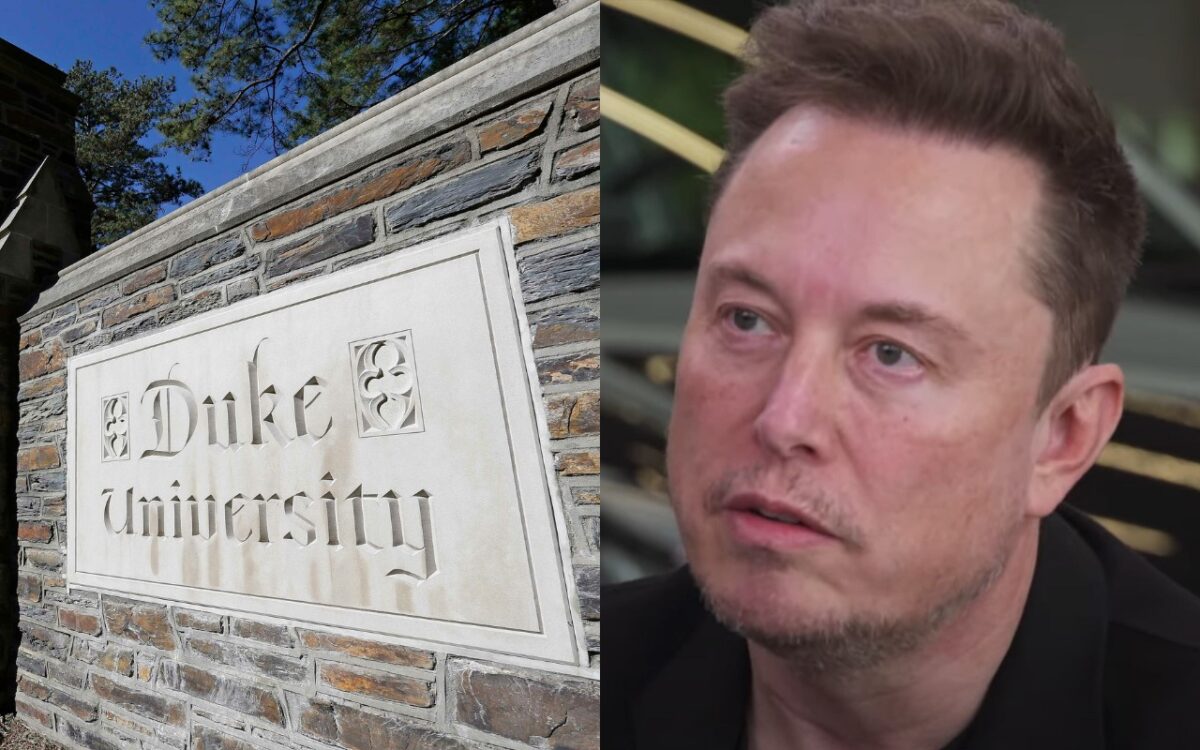Duke Issues Statement Refuting Elon Musk’s DEI Claims Made in Infamous Interview With Don Lemon

AP Photo/Gerry Broome, File; Don Lemon on YouTube
Duke University issued a response denying claims made by Twitter/X owner Elon Musk regarding their DEI program.
During his now-infamous interview with Don Lemon, Musk echoed claims by The Daily Wire’s Ben Shapiro that Duke University School of Medicine was lowering its standards as part of its efforts to support diversity, equity, and inclusion. On Twitter/X, Musk responded to Shapiro’s thread on the platform by saying, “People will die because of this.” During his conversation with Lemon, Musk reiterated the point and claimed that “they have literally lowered the standards at Duke University.”
Duke University’s School of Medicine issued a formal rebuke in its own Twitter/X thread last week saying:
Duke University’s School of Medicine has not lowered its standards for medical school admission or graduation, and continues to rely on GPA and MCAT scores, among other criteria.
Achieving health equity while recruiting diverse talent within our education and training programs allows us to deliver the highest quality care to our patients and makes Duke a world leader in innovative and transformative research.
Lemon also posted a video response on YouTube to refute both Musk and Shapiro:
What’s more, not only are standards at Duke not being compromised for DEI, the average GPA has gotten higher since DEI efforts started. Writer Michael Harriot posted a lengthy thread that had the receipts to debunk the claims, but here’s the tweet with the data showing a higher GPA:
When you focus on diversifying the applicant pool, you don’t have to lower the standards. In fact, Duke Medical School’s applicants’ GPAs INCREASED as the school became more diverse.
And here’s the thing: Even though the % of nonwhite students increased… pic.twitter.com/KR9doVeTCl
— Michael Harriot (@michaelharriot) March 20, 2024
Shapiro had originally cited an interview with Duke surgical resident Vignesh Raman saying that the admissions process at Duke’s medical program had shifted following the death of George Floyd in 2020:
The most important thing we’ve done is, really, systemic changes to our recruitment process to try to recruit diverse residents to our program and then to retain and support those diverse residents after they get to our program. So part of this has involved transitioning to [a] completely holistic review process that we spoke about earlier today — abandoning all sort of metrics and screens, looking at people’s life story and what brought them into surgery. And then, the other part of it is increasing the diversity of the people who read the application, because that’s an important component of ensuring that we get diverse residents into our program.
However, as the Duke Chronicle pointed out, “Shapiro does not provide further evidence of lowered standards at the School of Medicine.”






